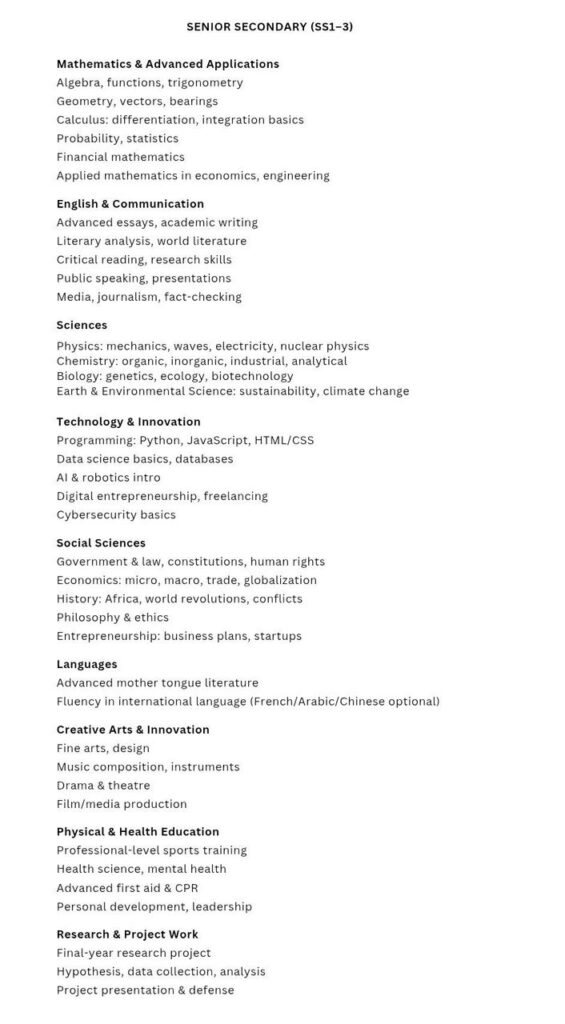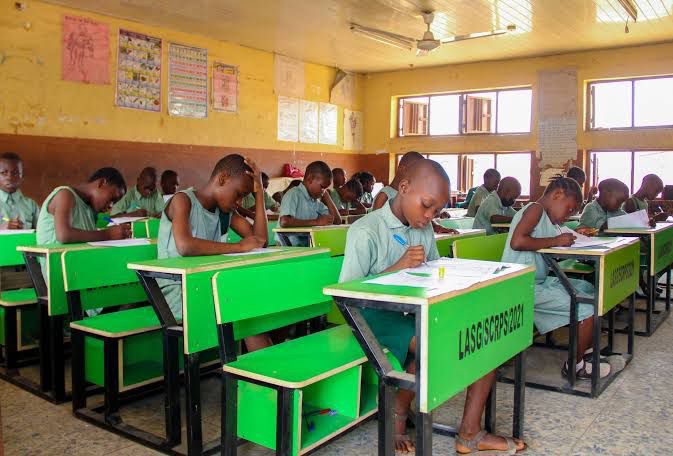Lagos, Nigeria – September 4, 2025 – In a bold move to align its education system with the demands of the 21st century, the Nigerian Federal Government has unveiled a revamped national curriculum for basic and secondary schools, incorporating cutting-edge subjects like artificial intelligence (AI), robotics, and cybersecurity. The initiative, announced this week by top education officials, aims to equip the nation’s youth with digital skills essential for global competitiveness and economic growth.

The new curriculum, set to roll out nationwide starting September 2025, represents a significant overhaul of Nigeria’s educational framework. It shifts toward a learner-centered approach, emphasizing practical skills, digital literacy, and entrepreneurship to combat youth unemployment and prepare students for a tech-driven world. “This is part of efforts to modernize Nigeria’s education system,” said Dada Olusegun, Special Assistant to President Bola Ahmed Tinubu on Social Media, in a recent statement sharing excerpts of the curriculum.
At the junior secondary school (JSS) level, students will now encounter compulsory digital literacy and coding, including basics in Python, Scratch, and robotics. Foreign language fluency and creative arts are also highlighted, with options for trade subjects like solar photovoltaic installation, fashion design, livestock farming, beauty and cosmetology, computer repairs, and horticulture. For senior secondary schools (SSS), the curriculum introduces advanced modules in AI, data science, programming languages such as JavaScript and HTML/CSS, cybersecurity, and even journalism under English studies, complete with fact-checking skills.
Minister of Education Dr. Olatunji Alausa, speaking at the 2025 International Conference of the African Curriculum Association, described the changes as creating a “future-ready” system. Represented by Minister of State for Education Suwaiba Ahmad, he emphasized that the review involved broad stakeholder input and follows global best practices. “The curriculum is learner-centred and focused on 21st-century skills, values, national heritage, and effective citizenship,” Alausa noted, highlighting its competency-based design to improve learning outcomes.
The reform also reduces subject overload: JSS students will take 12-14 subjects, while SSS students handle 8-9, including five core areas like English, Mathematics, Citizenship Studies, Digital Technologies, and a trade subject. This structure draws from collaborations with bodies like the Nigerian Educational Research and Development Council (NERDC), Universal Basic Education Commission (UBEC), and others, ensuring alignment with examination councils such as WAEC and NECO.
Education experts have praised the initiative for its forward-thinking vision. Dr. Aminu Makama Ilelah of Abubakar Tafawa Balewa University in Bauchi called it a step toward preparing students for higher education and self-employment. However, implementation challenges loom large. Teachers and school administrators have voiced concerns over inadequate infrastructure, especially in public and rural schools. “Subjects like AI and robotics require specialized skills and equipment that many schools lack,” said Alfred Daniel, a teacher in Abuja.
Parents echo these worries, questioning teacher training and funding. Mr. Abayomi Peter, a parent in Lagos, welcomed the focus on practical skills but stressed, “Without proper resources, this could widen the gap between private and public education.” State governments, such as those in Edo and Kwara, have committed to assessments and phased rollouts, but calls for extended preparation time—up to a year—have emerged from proprietors like Yusuf Oriyomi.
As Nigeria hosts international discussions on digital education, this curriculum signals a commitment to innovation amid economic pressures. With youth unemployment hovering around 40%, integrating AI and tech skills could be a game-changer, provided the government addresses the hurdles of training, infrastructure, and equity. Educationists like Dr. Isah Nasidi of Baze University warn that without political will, the reforms risk falling short, exacerbating urban-rural divides.
The full curriculum details are expected to be released soon by the Ministry of Education, marking a pivotal moment in Nigeria’s quest to build a knowledge-based economy.





Your article helped me a lot, is there any more related content? Thanks! https://www.binance.com/register?ref=IXBIAFVY